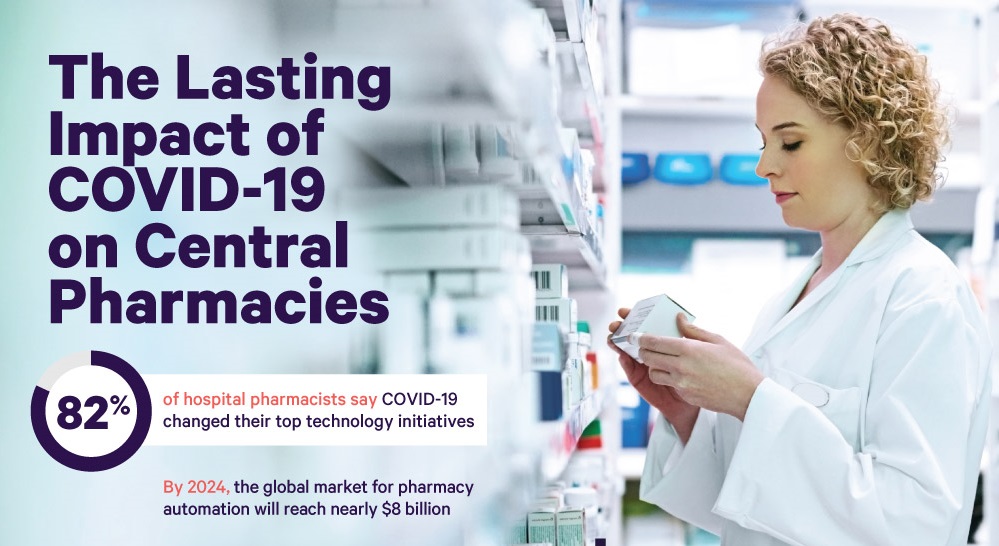The COVID-19 pandemic has caused great pressure on pharmacies to keep up with increasing demand. 70% of hospital pharmacists had to deal with more responsibilities during the pandemic while compounding pharmacies had to help provide hospitals with disinfectants, medications, and hand sanitizers. 86% of hospitals changed their guidelines for medication usage, which included COVID-19 treatment and expanding compassionate use or investigational drug studies. This has led to an increase in prescription demand across the U.S. by about 15%.
Staffing at pharmacies has also been affected by the pandemic. In 2020, 75% of pharmacists stated they had burnout while in 2021, 80% of pharmacies struggled to fill vacancies for pharmacy technician, front-end employee, and staff pharmacist positions. Unfortunately, pharmacies can do little at the moment to completely rectify the situation due to increasing costs and decreasing revenue due to a drop in new prescriptions, increased infrastructure needed for P.P.E., and more money and time needed to address serious drug shortages. In fact, 86% of hospital pharmacists reported that the pandemic has caused an increase in drug shortages in 2020 with 62% of pharmacists currently facing more than 10 drug shortages. Some of the drugs include albuterol inhalers, sedatives, anesthetics, and corticosteroids.
Although there are many issues that need to be addressed, pharmacy automation technologies can address quite a few of them. Pharmacies can use automation for things such as barcode medicine identification and narcotic and controlled substance monitoring. Medication errors are common with one in 100 medical errors resulting in a preventable adverse drug event. Automation can reduce medication errors and improve patient care.
Automated dispensing can pick out more medications at a faster pace, which helps save costs. Medication management software can also save money by helping with inventory tracking to quickly find recalled medication for easy disposal and move medications to places where they are higher in demand so that they don’t expire without ever being used. Several hospital pharmacists have stated technology is crucial for success with 46% finding automated dispensing cabinets important and 42% saying controlled substance tracking is necessary.
The COVID-19 pandemic has helped hospital pharmacies put more emphasis on pharmacy automation in a positive way.


